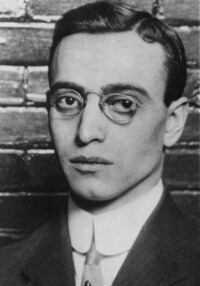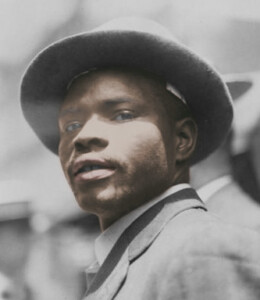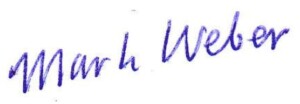IHR Mails Book on the Leo Frank Case to Georgia State Legislators
News from Institute for Historical Review
P.O. Box 2739, Newport Beach, CA 92659 Tel. 714 – 593 9725
April 12, 2025
The Institute for Historical Review (IHR) has mailed an important book on the historic Leo Frank murder case to all 236 members of the Georgia State legislature.

Leo Frank
This public service educational project is meant to correct erroneous but widely accepted claims about the most enduringly significant criminal case ever tried in the state.
Along with a cover letter (below), the California-based IHR sent each legislator a gift copy of The Leo Frank Case: The Lynching of a Guilty Man, an impressively researched analysis published by the Historical Research Department of the Nation of Islam. This 536-page book – available from the IHR —is illustrated with photographs, diagrams, and maps, and is referenced with more than a thousand footnotes.
The 1913 murder of Mary Phagan, a white 13-year-old factory worker in Atlanta, resulted in a sensational trial in which the jury found Leo Frank, her boss at the factory, guilty of the crime. He was sentenced to death. But shortly before his execution, Georgia Governor John Slaton commuted the sentence to life imprisonment. Eight weeks later, a group of enraged citizens took Frank from prison, drove him to the murdered girl’s home town, and hanged him from a tree.
For more than a century, the Anti-Defamation League (ADL) and other influential Zionist organizations, with support from the mainstream media and Hollywood, have claimed that Frank – a prominent figure in the Atlanta Jewish community – was an innocent victim of anti-Jewish bigotry.

Mary Phagan
“Truthful and fact-based perspective on this chapter of history is especially important right now,” says IHR director Mark Weber, “at a time when racial and religious discord is unfortunately so intense and widespread. We urge public officials and journalists to consider with an open mind the evidence presented in this book to help reach a sound judgment about a case that continues to generate keen interest and heated controversy.”
Sexual coercion, racial bigotry, planted evidence, violence, Jewish community pressure, and alleged anti-Jewish prejudice all figured in the dramatic murder trial, which garnered nationwide attention.
During the trial, Frank’s lawyers appealed to and tried to inflame anti-black sentiment among the twelve white men of the jury in an effort to pin the murder on Jim Conley, a black man who also worked at the factory. This book details the vicious racism of the defendant and his lawyers, who told the court that Conley was “a beastly, drunken, filthy, lying nigger,” “a cannibal, a man-eater,” a “stinking black brute,” and much more in that spirit.

Jim Conley
Remarkably, the white jurors set aside the anti-black attitudes that prevailed at the time, and instead concluded that the plain evidence, including the testimony of black witnesses, was more credible and convincing than the testimony of Frank or the arguments made by his legal team. Leo Frank was the first white man in the “Jim Crow” South to be convicted of a capital crime in a trial that prominently featured the testimony of black witnesses.
The Institute for Historical Review (IHR) is an independent educational center and publisher, that works to promote peace, understanding and justice through greater public awareness of the past, and especially socially-politically relevant aspects of modern history. The ADL and other Zionist groups have for years routinely smeared the Institute as a “hate group” or “Holocaust denial” organization. In fact, the IHR opposes bigotry of all kinds, and is proud of the support it has earned from people of the most diverse political views, and racial, ethnic and religious backgrounds.
Founded in 1978, the IHR is recognized by the U.S. Internal Revenue Service as a 501(c)(3) public interest, educational, not-for-profit enterprise. (More information about the Institute and its work is posted on the main IHR website .)
—————————————————————————————————————–
[ Along with a copy of the Leo Frank Case book, this letter was sent to each member of the Georgia State legislature. ]

March 2025
Enclosed as a gift for you is The Leo Frank Case: The Lynching of a Guilty Man, the best documented and most thorough analysis of the most enduringly significant criminal case ever tried in the State of Georgia.
The 1913 murder of Mary Phagan, a white 13-year-old factory worker in Atlanta, resulted in a sensational trial in which the jury found Leo Frank, her boss at the factory, guilty of the crime. He was sentenced to death. But shortly before his execution, Georgia State Governor John Slaton commuted the sentence to life imprisonment. Eight weeks later, a group of enraged citizens took Frank from prison, drove him to the murdered girl’s hometown, and hanged him from a tree.
Sexual coercion, racial bigotry, planted evidence, Jewish community pressure, and alleged anti-Jewish prejudice all figured in the dramatic murder trial, which generated nationwide attention.
For more than a century, the Anti-Defamation League and other influential Zionist organizations, with support from the mainstream media and Hollywood, have claimed that Frank – a prominent figure in the Atlanta Jewish community – was an innocent victim of anti-Jewish bigotry.
During the trial, Frank’s lawyers appealed to and tried to inflame anti-black sentiment among the twelve white men of the jury. The enclosed book details the blatant racism of the defendant and his legal team as they attempted to pin the murder on a black man who also worked at the factory. Claiming that only a black man could have committed the crime, Frank’s lawyers told the jury that “this stinking black brute” was responsible for the murder, and that it was “the crime of a cannibal, a man-eater.”
Remarkably, the white jurors set aside the anti-black attitudes that prevailed at the time, and instead concluded that the plain evidence, including the testimony of black witnesses, was more credible and convincing than the testimony of Frank or the arguments made by his legal team. Leo Frank was the first white man in the “Jim Crow” South to be convicted of a capital crime in a trial that prominently featured the testimony of black witnesses.
This 536-page book is illustrated with photographs, diagrams, and maps, and is referenced with more than a thousand footnotes. We urge you to consider with an open mind the evidence presented here to help in reaching a sound judgment about a case that continues to prompt keen interest and heated discussion.
Sincerely,

——————————————————————————————————————————————————–